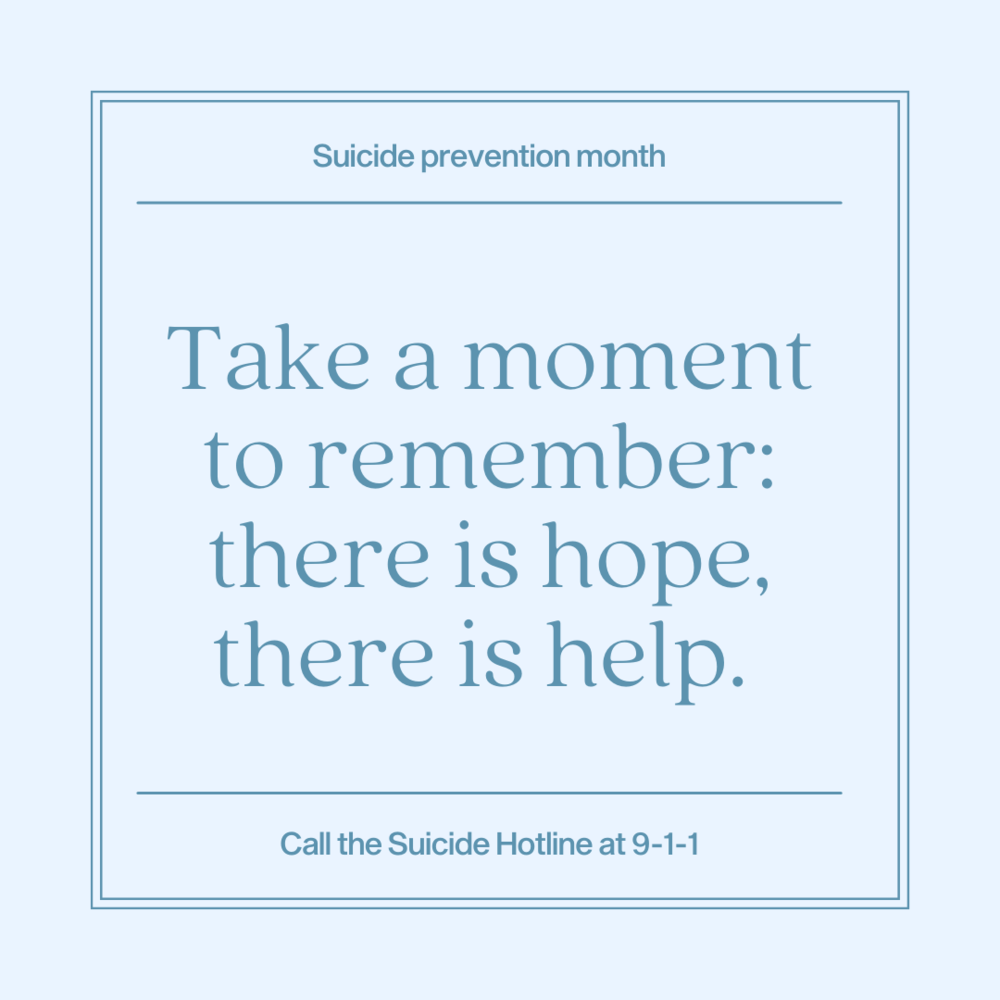Recognizing when people in our lives are struggling with emotional pain, and helping them feel comfortable to talk about it can help prevent mental health crises, including suicide. Learning the warning signs, knowing how to start a conversation, and knowing where to get professional help can make a powerful life changing difference.
#1 Know the signs
Warning signs of suicidal thoughts indicate that someone might be in acute danger and urgently need help, and they can vary by age, gender, sexuality & cultural identity:
Talking about wanting to die or to kill oneself
Looking for a way to kill oneself
Talking about feeling hopeless or having no purpose
Talking about feeling trapped or being in unbearable pain; wanting it to end or not wanting to wake up
Showing rage or talking about seeking revenge
Increasing the use of alcohol or drugs
Acting anxious, agitated, or reckless
Sleeping too little or too much
Withdrawing or feeling isolated
Talking about being a burden to others
Displaying extreme mood swings
Learn more about: Youth warning signs, Risk & protective factors, and LGBTQI+ warning signs
#2 Find the words
If you are worried about someone's mental health, it is important to have the courage to start the conversation, share what you are noticing, listen empathetically and offer help.
Ask how they are doing - if they are having pain, thoughts of suicide or ending their life
Express your concern about what you are observing in their behavior
Listen attentively and non-judgmentally
Reflect what they share and let them know they have been heard
Tell them they are not alone- let them know there are people and treatments available that can help
If you are or they are concerned, guide them to additional professional help
#3 Reach out for help
Keep a list of crisis and local resources handy.
For crisis support:
Call the lifeline at 988 or text "HELP" to 741741 for free crisis counseling 24/7/365
Call 9-1-1 and request a crisis trained responder
Go to your local emergency room
For ongoing therapeutic support:
Care Solace is a 24/7/365 coordination service to help find local mental health programs and counseling services. Care Solace will help you quickly find an appointment matched to your unique needs regardless of circumstance. The Care Solace team can help in any language and with all types of care.
Students, staff & families can access Care Solace services for free:
Call (888) 515-0595 to speak with someone from the Care Companion team
Visit your custom district link: caresolace.com/ridley
Learn more about how to know the signs, find the words, and reach out for help here.

